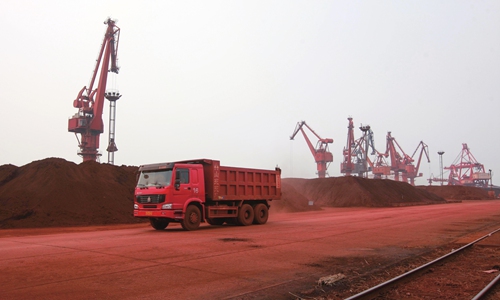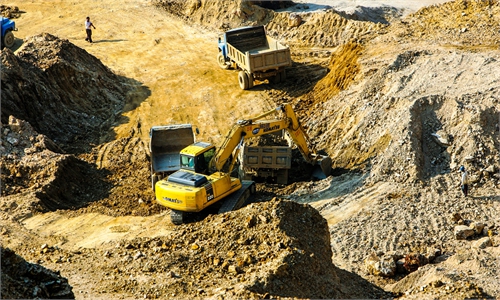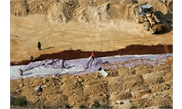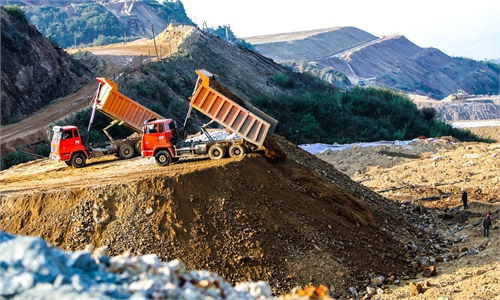SOURCE / INDUSTRIES
Concerns about export restrictions drive up rare-earth prices

A rare-earth mining operation in Baotou, North China's Inner Mongolia Autonomous Region Photo: cnsphoto
Chinese export control law that will take effect starting on December 1 may include rare earth as a retaliatory measure responding to US sanctions over chip supplies targeting Huawei, experts said.
The remarks came as the price of rare earth rose further in November, with neodymium oxide rising 11.56 percent to 511,500 yuan (US$77,900) per ton on Wednesday and praseodymium oxide rising 8.08 percent to 441,500 yuan per ton, with other materials also rising at varying degrees, according to open source data. Among the rising prices, neodymium oxide recorded a marked increase of 37.2 percent so far this month.
Rising rare-earth prices are partially due to the surge of concentrated demand and temporary supply constraints, industry insiders said. With the resumption of work and production in China and the continuous spread of the global pandemic, the demand for rare earth continues to grow.
However, China as the world's largest rare earth exporting country, rising prices have also driven growing concern by foreign traders that rare-earth supplies may be constrained if it is included in a new export control law that will take effect on December 1.
"Japan, the US and European countries are buying the largest quantity of rare earth from China because they need them for advanced manufacturing, and they are afraid that they will find it harder to import rare earths from China after new regulations are in place," Zhou Shijian, a former vice president of the China Chamber of Commerce of Metals, Minerals & Chemicals Importers and Exporters, told the Global Times on Thursday.
Yet Zhou noted that there is no need for Japan and some countries in Europe to worry too much about continuing to purchase Chinese sourced rare earth, as China may use rare earth principally as a "tool of reprisal" in retaliation to the US chip ban targeting Huawei.
"After all, it makes no sense for the US to make chips using Chinese rare earth to make things like chips and then block their sale to Huawei," said Zhou, adding that he expects the regulatory law will include tungsten, tin, antimony, niobium, titanium and cobalt, all of which are widely used in areas such as aviation, defense and communications.
Although rare earth will be included in the export control list, how China will implement these regulations partially depends on the actions of importers, experts said.
The recent rise in rare-earth prices is driven by policy settings, Zhou Hongchun, a research fellow with the Development Research Center of the State Council, China's cabinet, told the Global Times on Thursday.
"The upgrading of China's industrial base and modernization of industrial supply chains are central to the 14th Five-Year Plan, meaning less exports of primary raw materials, including rare earth, and a corresponding increase in exports of more value-added products, which also contributes to higher prices," said Zhou.
In the short term, the proportion of domestic home appliances and variable frequency air conditioners continues to increase, which is expected to bring the growth rate of magnetic material demand for these products to exceed 60 percent in 2021-2022, according to media reports.
In addition, with consumer electronic markets stabilizing, wind power still in its early stages, and leading magnetic material factories continuing to expand, the combined price increase of light and heavy rare-earth materials is expected to continue due to strengthening demand, industry insiders said.



